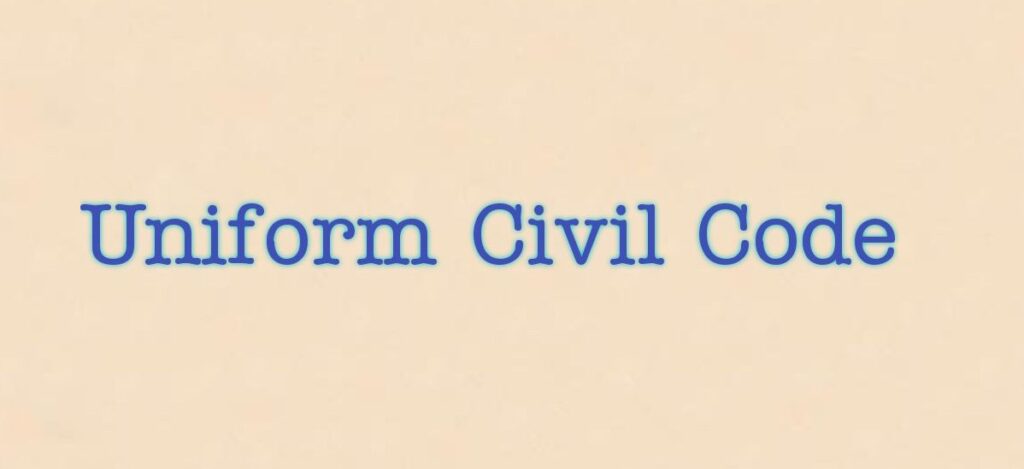UCC refers to same set of civil laws applicable to all citizens of India in their personal matters such as marriage, divorce, custody, adoption and inheritance.
Article 44 Under Directive Principles of State Policy of the Constitution says that the state shall endeavor to secure a UCC for the citizens throughout the territory of India.
Historical Background:
• In 1840, on the basis of Lex Loci Report, the British government established uniform laws for crimes, evidence and contracts. And personal laws were left intensionally to them.
• In 1941, Government formed B N Rau Committee to codify Hindu laws and give women equal rights.
• Special Marriage Act, 1954, provides a form of civil marriage to any citizens irrespective of religion.

Judicial Pronouncements through Various Judgements:
• Shah Bano Case (1985): Highlighted the need of Common Civil Code to facilitate National integration.
• Ms. Jordan Diengdeh v. S.S. Chopra (1985): Need for framing Uniform Civil Code for Marriage and Divorce was raised by the Court.
• Sarla Mudgal Case (1995): Reiterated the need for Parliament to frame a UCC, which would help cause of national integration by removing ideological contradictions.
Read My Previous Essay: Click Here
Present Scenario of Personal Laws in India:
• Religious communities in India are currently governed by their own system of personal Laws.
• Presently, Goa is the only state with UCC. The Portuguese Civil Code of 1867, which continues to be implemented applies to all Goans, irrespective of their religious or ethnic community.
Arguments in favour of Implementation of UCC:
• Equal status to all citizens irrespective of religion and gender: Women are considered less privileged and men are considered more privileged under Personal laws which have their origin in the Customs and Traditions.
• Helpful for the Nations Integration through similar laws on personal matters which will avoid giving advantages to few and disadvantages to others.
• Greater simplification of personal laws, as there has been complexity in every laws of community with different approach.
• Protection of Citizens which are vulnerable, it will provide protection by including women and other religious minorities.
• Helpful to address the inconsistencies in the most criminal and civil matters. Uniformity will bring in these matters.
• Helpful to safeguard the fundamental rights of the all citizens and helpful to reduce the social Inequalities, gender discrimination.
• As let Dr B. R. Ambedkar, there should be uniformity in the personal laws which is necessary for empowering women and gender equality in the matters of Marriage, Divorce, and Inheritance.
• It will provide the equal opportunities and Protection to the deprived women From their rights and discrimination cause to them.
Arguments against the Implementation of UCC:
• India is known for Unity in Diversity, it’s an example for its rich diversity. Framing this Diversity into an one frame and seeing this with one sides is disastrous.
• It will affect the rights of minorities, as constitution ensures their rights. Freedom to practice religion and Religious freedoms will be affected.
• It will affect the Tribal Culture and their Customary laws, they follow their own laws based on their own culture. And constitution ensures their rights.
• UCC is being considered as great interference of State in the personal matters and despite the constitutional religious freedoms.
• Not Correct time to bring UCC, According to the Law Commission in a consultation paper in 2018 said that, UCC is neither necessary nor desirable at this stage.
Way Forward:
• Cooperation of all the religious communities should be ensured.
• Rights of minorities And greater protection of tribals should be ensured.
• Personal laws should be ensured gender equality.
• Collaborative approach would be there with all the stakeholders, leaders of religious communities, people should be made aware, and taught with modern uniformity of all.
Conclusion:
Uniform Civil Code will provide the uniformity and it will be a step towards Ensuring Equality and Protection from discrimination. It is the necessity of the current situation with very diverse nature of society with the presence of large Inequalities. At the same time, Rights of minorites must be protected well.
